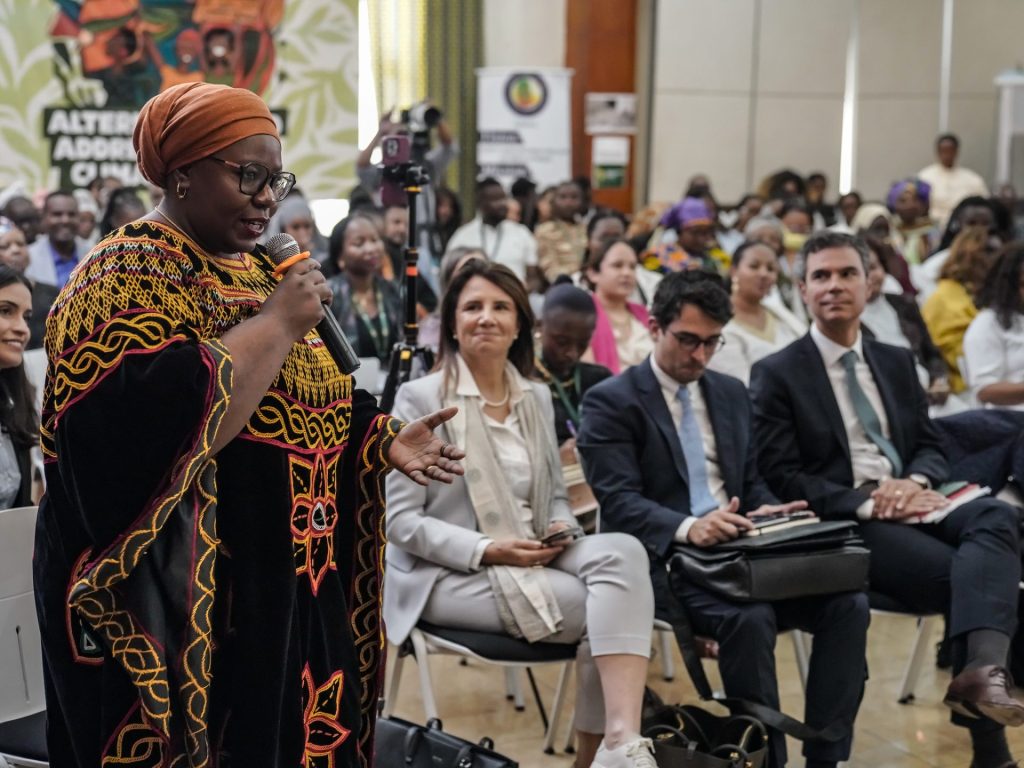In the absence of government action to ensure seed sovereignty, youth groups and disgruntled farmers across Africa have been taking to the streets and courts, to protest the criminalisation of the use of native seeds in some countries, and the adoption of genetically modified crops in others.
Kenya, Uganda, Tanzania, Nigeria, Ghana, South Africa, Zambia, Malawi, Zimbabwe and Ethiopia, have all introduced seed laws that either regulate production, certification or distribution of seeds.
Policy makers argue that these seed laws boost agricultural productivity, bring quality into African farms, can help battle the rising food crisis and that they are aligned with intergovernmental food systems policies, like those of the African Regional Intellectual Property Organization (ARIPO). They also claim improved seeds are well suited to different agroecological zones and that the laws provide farmers legal recourse against low quality seeds from suppliers, since they are certified.
“Improved seeds give farmers better yields, protect them from food insecurity and the spread of seed-borne diseases. If I go and buy when it is certified, then I know I can hold someone liable for selling me seed that is not good,” says Veronica Ndeti, a Kenyan government official and an agriculture group negotiator at UN climate talks.
Rights groups and farmers are not convinced. They claim the laws are an attempt to phase out African traditional food systems while protecting industrial plant breeders’ rights. For instance, the Kenya Seeds and Plant Varieties Act criminalises the propagation and exchange of uncertified seeds. It also gives government seed inspectors the power to enter a farmer’s field and arrest those that have violated the law. Violation is punishable by a fine of up to Kes. 20,000 (about US$ 155), a jail term, or both.
Farmers on the other hand would be forced to depend on imported farm inputs like hybrid seeds, robbing them of the security that traditional seed systems have provided communities for generations, rights groups argue. The concerns cannot be ignored, and for a good reason. African indigenous seeds are adopted to local climates, soils and farming practices developed over centuries. They are genetically diverse and possess traits that make them more resilient to pests, diseases, droughts and other shocks worsened by climate change.
Not only are there concerns regarding the motives behind these laws, but they also raise questions of fiscal sovereignty. According to Million Belay, the general coordinator at the Alliance for Food Sovereignty in Africa (AFSA), seed laws contribute to Africa’s debt trap, where countries are being forced to open up their food systems to international markets as a way of raising funds to repay their debts. There are also concerns that the reason African governments are forming alliances through proxies like multinational food companies, is to win financial favours from wealthier countries.
“Besides the narrative being promoted by outside actors that African indigenous seeds are backward, our governments always listen to the funders. Governments are in debt. They want to export and get money and pay their debt. Geopolitics is fanning chaos all designed to put Africa into a space where we can be a market,” says Belay.
In some countries like Kenya, farmers have filed court petitions opposing the Kenya Seeds and Plant Varieties Act. In Ghana, farmers have been battling a plant bill that aimed to introduce GMOs in that country. Hardline approaches like protests are failing to change the narrative in favour of African farmers, and it is unlikely governments will back down on unpopular seed laws.
That could change as the continents’ youth join the fight against harsh seed laws with an intellectual war chest. African Gen Z is critically looking at government laws, regulations and agreements on food systems, and launching campaigns to oppose bad laws and pushing for agricultural policy reforms.
The idea is to decolonise mindsets that Africa can only prosper when farmers depend on hybrid seeds that can only be planted once per season, and reduce reliance on donor funding to support the continent’s social systems, says Melissa Takudzwa Murwira, an activist with the Young Volunteers for the Environment in Zimbabwe.
“We need … young people [to be] motivated to implement innovations in their respective countries that can fix our food systems without outside control,” says Murwira.
To see how Africa’s youth can fix the continent’s troubled food systems requires imagination, and some practical innovations that can persuade governments to re-think implementation of controversial seed laws.
Youth-led community seed banks are stirring a re-think on this front. The banks are local stores where indigenous seeds are kept as a means of conserving the diversity existing within African communities.
As seed distribution and aggregation points, they give farmers access to seeds of their choice, based on an agreement that they will return a specified amount after they harvest aiming to replenish the stores.
“Seed is a key factor of production. We cannot speak of food production if we do not have seeds. Let us have a conversation about seed sovereignty because he who feeds you controls you. Control starts from the seeds and as Africans we need to stand up and protect our right to seed sovereignty,” says Claire Nasike, the founder of Kenya’s Hummingbird Foundation.
At the African Union headquarters in Addis Ababa, Ethiopia, during the 1000 Youth Summit on Food Systems and Agroecology, youth groups cornered policy makers, calling on them to commit to the integration of agroecology in government national plans.
“We have been challenged to ensure our food security and sovereignty. I want to pledge the inclusion and the mainstreaming of agroecology in our policies and voice them further in global conferences and African platforms,” said Dr. Fitsum Assefa Adela, the minister for planning and development in Ethiopia.





